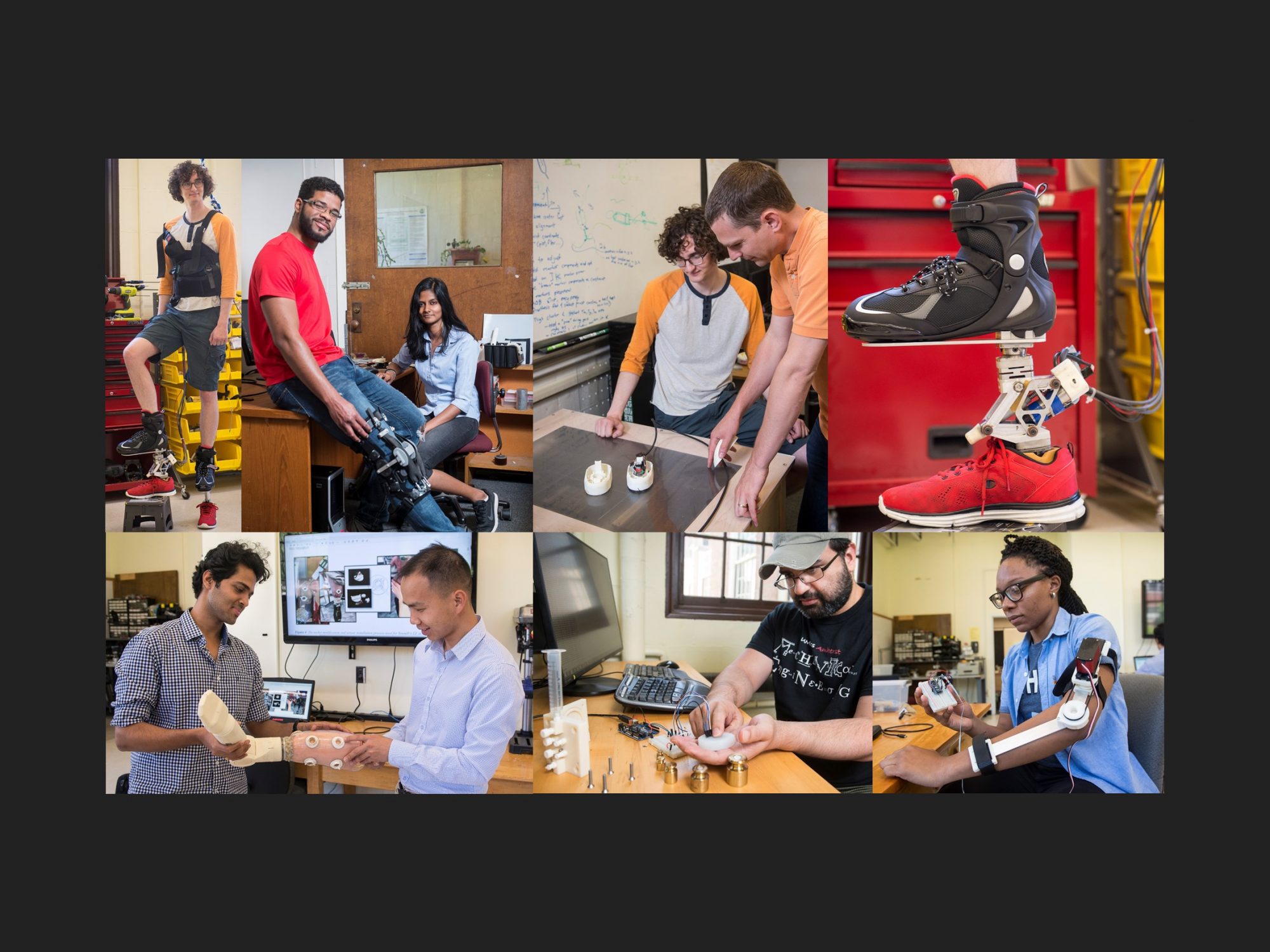MRRL Lab Members
[foogallery id=”517″]
Graduate Alumni
Dr. Mark Price – 2016 MS / 2020 PhD – Post-Doc @ Human Robot Systems Lab and Integrative Locomotion Lab
Dr. Ericber Jimenez Francisco – 2020 PhD – Post-Doc @ UMass Musculoskeletal and Orthopedic Biomechanics Lab -> San Francisco Giants
Dr. Vinh Nguyen – 2016 MS / 2019 PhD – Ghost Robotics
Soumitra Sitole – 2018 MS – PhD in the MRRL
Punith Lakshmi – 2017 MS – Integrated Construction – Robotics Division
Youssef Jaber – 2017 MS – Ingersoll Rand
Dr. Abhijit Kadrolkar – 2016 PhD – Medtronic
Dr. Andrew LaPre – 2012 MS / 2016 PhD – FTL Labs Corp
Qiandong Nie – 2016 MS – MS in CS @ LSU
Matthew Ryder – 2015 MS – Sensata Technologies
Jonathan Cummings -2014 MS – MIT Lincoln Laboratory, Dephy
Airton da Silva – 2014 MS – Avitas Systems
Haohan Zhang – 2014 MS – PhD, Columbia University – ROAR Lab
Zhe Zhang – 2013 MS – China Mobile Group Design and Consulting Company
Post-Docs and Visitor Scholars
Dr. Yali Han – 2018 Visiting Faculty – Associate Professor at Nanjing Institute of Technology
Dr. Ulvi Baspinar – 2015-16 Post-Doc – Assistant Professor at Marama University, Turkey
Dr. Lieselle Trinidad – 2015 & 2016 Visiting Faculty – Assistant Professor at SUNY Buffalo
Undergraduate Honors Alumni
David Javadian – 2020 – PhD, U. of Connecticut
Ian McGinty – 2018 – Secret Startup, PhD – TU Delft
Jacqueline Lagasse – 2018 – MS, UMass-Amherst
Steven Luk – 2018 – MS, Columbia University
John Melloni – 2018 – MS, Stanford University
Brian Jin – 2016 – MS, Columbia University – ROAM Lab
Carmine (CJ) Taglienti – 2016 – MS, UMass-Amherst
Caitlin McLain – 2015 – Apple
Devin Carroll – 2015 – PhD, U. of Pennsylvania
Liam Kelly – 2014 – Bose Corporation
Neil Mahesh Bajaj – 2014 – PhD, Yale University – GRAB Lab
Natalie Zucker – 2013 – Bose Corporation
Andrew Erwin – 2012 – PhD, Rice University – MAHI Lab
Amanda Willis – 2012 – Raytheon
Steve McKinley – 2011 – PhD, U. of California Berkley
Independent Studies and Volunteers
Christoph Nüsslein – 2017 Intern, 2020 Summer Intern, I.S. 2020 – PhD, Georgia Tech – EPIC Lab
Meghan Mulloy – I.S. 2020, MS, U. of Pittsburgh
Abigail Risse – I.S. 2020 – iRobot
Christopher Knecht – MS/I.S. 2020
Jade Saint-Paul – 2017 Volunteer – BS, UMass Amherst
Mandira Marambe – 2017 Intern/I.S. – BS, Smith College
Megan McGahren – 2017 Intern – BS, Smith College
Nicolas Sawyer – 2016-17 I.S. – BS, UMass Amherst
Shannon Fan – 2016-17 Volunteer – BS, UMass Amherst
Karl Schmeckpeper – 2013-15 Lab Assistant – PhD, U. of Pennsylvania – GRASP Lab
Rebecca Schliemann – 2015 Intern – BS, Virginia Tech
Daniel Smoliga – 2015 I.S. – Huber+Suhner Astrolab
Yoshiaki Uwamino – 2015 Graduate Visitor – MS, Hokkaido University, Japan
Volker Boss – 2013 I.S.
Jacob Miller-Mack – 2013 I.S. – Pika Energy
Catherine Paquin – 2013 I.S. – Terumo Heart

